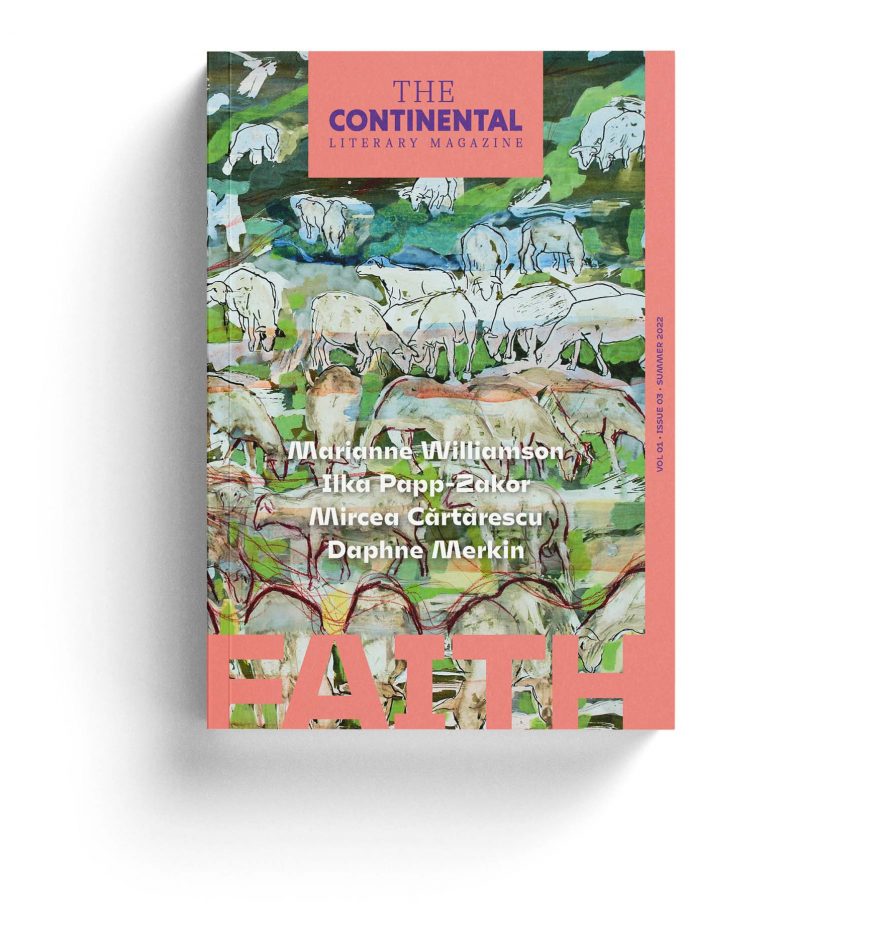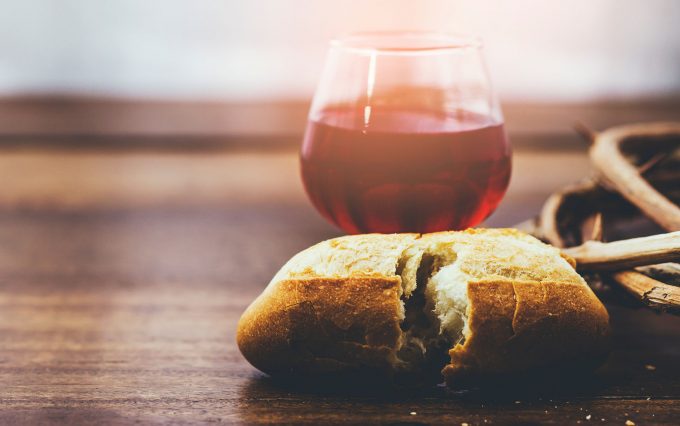
6th October 2022
Poetry
2 minutes read
Then Without the Body
translated by Anna Bentley

6th October 2022
2 minutes read
The way he breaks the bread,
the way he pours the wine,
the way he brushes the crumbs from his beard,
is utterly unmistakable.
These gestures alone
must be preserved whole:
the layered crust bending, then parting softly,
a gentle imitation of suffering;
the slosh of the carmine wine,
the thumbs sinking into the crumb of the bread,
the gleam of the porcelain-white nails.
Yes, it really no longer matters
if it’s similar merely
or one and the same. As time passes, the line of his jaw,
the barely visible quiver of his eyelids,
the creased skin on his wrist
sink further into forgetting
because really, it’s the result that counts,
the bread and the wine, that is,
the words fitted neatly inside each other,
everything, therefore, that proceeds from us,
but for a while is not us
then is us once again,
collapse, rejection, resurrection,
this is what we all longed for,
this broken bread, I mean,
the ultimate proof,
that we are not shoulder, nor ribs, nor belly,
nor groin, nor thigh, nor knee,
but the act of walking, nodding, raising a hand,
the seeping also of tears or blood,
the path taken outside the body
by all sorts of secretions,
maneuvers, that is, performed
first outside the body,
then without the body,
the repeated deeds of the soul,
the cry that sounds across ages:
just like him, as if it were him, only him:
the bread broken in the same way to
the last millimeter at Emmaus,
and it really doesn’t matter who’s on the other side,
whose knee brushes against your knee;
all that counts is the chewing, the sipping, the sighing,
for it’s the same bread in different baskets,
and the same wine filling different cups,
the hand scribes the same way on the spotless paper;
in the ground the bone, the flesh,
the nails, the hair decay the same way,
but still, the look in his eyes remains,
you feel it on your cheek, you feel
your tears and your laughter are witnessed,
you see that look
in places you least expect it;
for this, no touch is needed,
only a hand’s endless journeying towards you.
from Egy mondat a szabadságról [A Sentence On Liberty] (Kalligram, 2020)







